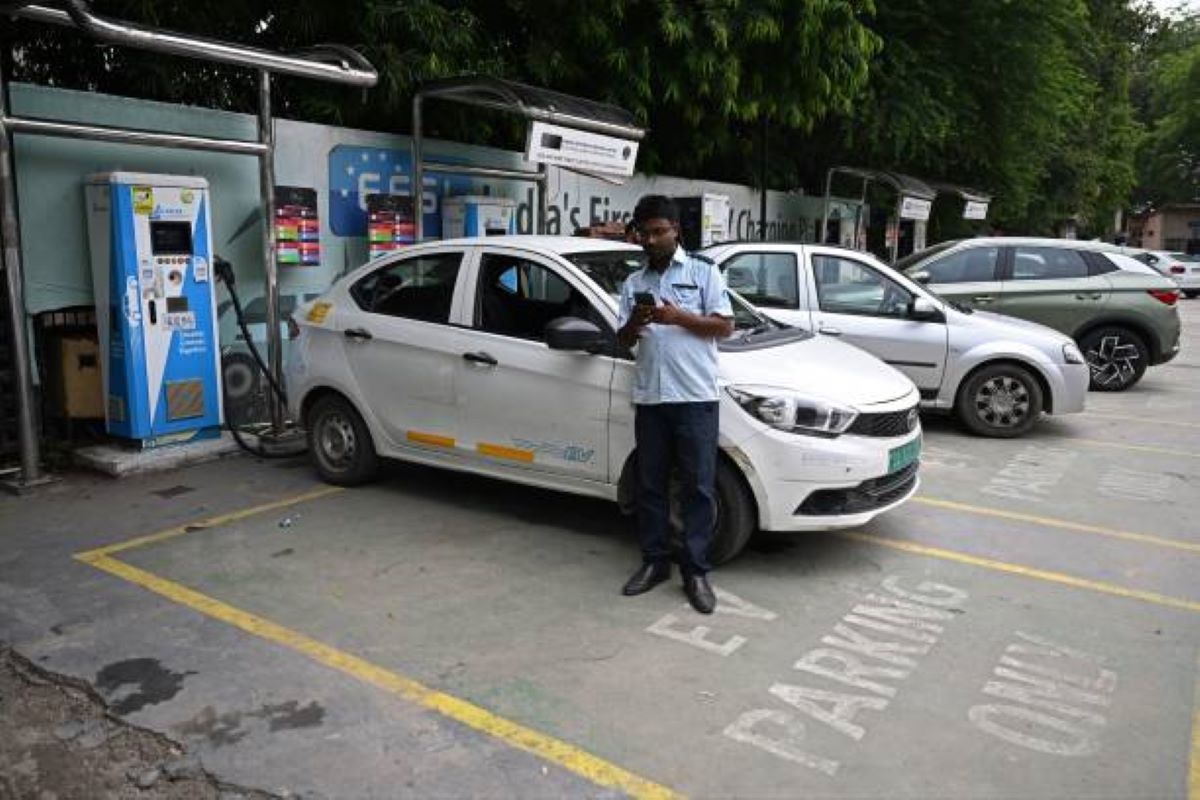The electric vehicle EV cyber security sector is still young and in its infancy, but faces many challenges. Recently, concerns such as “range anxiety” among consumers (whether the vehicle’s battery will be able to charge and complete planned trips) and the vehicle losing power in cold weather have led to a slowdown in adoption.
While the evolution of the integration of electric vehicles into our lives remains uncertain, there are critical issues that need attention yet are rarely discussed in the press.
The Electric Vehicle EV cyber security efforts are not just about protecting; it’s also about ensuring the fundamental reliability and trustworthiness that are essential to the EV revolution, not just digital infrastructure. This highlights the broader principle that safety must be at the heart of any development of any system, Electric Vehicle EV cyber security or otherwise.
Related: Electric Cars in India: Pros, Cons, and Charging Infrastructure
Building robust cyber security measures from the start is essential to protect both the technology itself and the users who rely on it, building a secure and resilient foundation for future mobility.

Electric Vehicle EV Cyber security
As electric vehicles grow in popularity, hackers are lurking to exploit the expanding digitally connected network they rely on. As these vehicles become more connected and dependent on digital technology, the entry points for malicious activity increase. This fact highlights the utmost need for diligent EV cyber security, as lives and safety are at stake. The following threats to electric vehicles highlight the most pressing cyber challenges:
Signal Interception:
Hackers could intercept wireless key fob signals and trick the vehicle into thinking a key fob is nearby, granting unauthorized access.
Malware Introduction:
Weak charging stations can provide a channel for hackers to install malware, compromising the Electric Vehicle EV cyber security and functionality of the vehicle.
EV Vehicle Cyber security Vulnerabilities Discovered:
EV vehicle cyber security audits often uncover significant vulnerabilities in chargers, including the exposure of sensitive information such as usernames, passwords, and login credentials.
Malware Risk:
Publicly accessible electric vehicle charging stations (EVSE) are vulnerable to malware attacks, putting the integrity of critical charging infrastructure at risk.

Threats to Grid-Connected EVSE:
Cyber-attacks on grid-connected EVSE pose the risk of causing massive disruptions to the electric distribution system, impacting countless users.
EV Vehicle Cyber security: Systemic Vulnerabilities
The electric vehicle ecosystem includes technologies such as wireless, cloud, and health, representing a comprehensive network that is inherently vulnerable to cyber threats. This convergence of technologies increases the capabilities and convenience of electric vehicles but also creates many challenges.
The distributed, decentralized, and connected nature of electric vehicle digital systems requires heightened vigilance and a proactive approach to the EV vehicle EV cyber security. Ensuring EV cyber security is a public safety issue and essential to protecting the lives of car owners and the general public.
The Dark Side: Integrated but Vulnerable

Teslas have abundant computing power and an extensive network of digital processing modules that orchestrate everything from the vehicle’s operation to the driving experience.
They represent a major shift toward a technologically rich, digitally integrated automotive world.
Consider the standard Tesla example.
It is an incredible technology, but it also comes with vulnerabilities. Risks range from hacker attacks that can affect vehicle functionality, to sophisticated attacks on operational technology, to security breaches that threaten data protection.
The importance of Electric Vehicle EV cyber security in advancing the adoption of electric vehicles is undeniable. Protecting the electric vehicle infrastructure and its complex supply chain is paramount to thwarting potential cyber-attacks.
Adherence to rigorous Electric Vehicle EV cyber security protocols and industry-wide standards is essential to seamlessly and securely integrating electric vehicles into everyday transportation paradigms and safeguarding the future of mobility from emerging cyber threats.
Mastering the Complexity of the Digital Automotive Industry
While consumers often overlook the complexities of the products they use every day, manufacturers, especially in the electric vehicle industry, cannot afford to do so. The sector is characterized by a global and complex supply chain with a heavy reliance on electronic components sourced from a few select suppliers, primarily in Southeast Asia.
Related: Difference between manual car, AMT car, DCT, CVT
This reliance on a concentrated supplier base introduces additional vulnerabilities that can be exacerbated by regional political developments. The potential for a single point of failure in this supply chain to cause widespread disruption cannot be underestimated.
For example, the recent withdrawal of self-driving Cruise vehicles from San Francisco and Austin highlights the concrete risks associated with software flaws in advanced automotive technology. Cruise, a San Francisco-based manufacturer of self-driving cars and a subsidiary of General Motors (GM) faced serious consequences when a programming issue led to an accident involving a pedestrian.
Such incidents highlight the importance of robust software integrity in the evolving automotive landscape. Imagine the impact of a long-term semiconductor factory shutdown on multiple industries, or the impact of parts shortages at electric vehicle charging stations.
Even more important is to consider how cyber security breaches and operational failures in any sector of the industry could jeopardize not only vehicle mechanics but also the privacy and even physical integrity of users.

Cyber security measures are fundamental not only to maintain operational integrity, but also to maintain vehicles, keep production processes safe, protect the privacy of drivers and users, and even maintain the interconnected fabric of the entire industry.
Ensuring Trust in the Electric Vehicle EV cyber Security Ecosystem
Consumer trust is essential for the adoption of electric vehicles (EVs). A discerning public will quickly recognize and respond to any perceived flaws or risks that could impact the security, privacy, or reliability of the transportation solution.
Consumers need to be confident in the security of their vehicles, assurances that their data is protected, and the reliability of the charging infrastructure that is free from fraud and operational risks.
To foster this trust, the electric vehicle industry must adhere to rigorous safety standards and commit to a culture of comprehensive safety practices. Knowledge of vehicle availability, access to spare parts and reliable maintenance services also play a key role in building this trust.
Implementing a robust Electric Vehicle EV cyber security risk management strategy, adhering to strict security principles and fostering continuous improvement and ongoing vigilance will enable companies in the Electric Vehicle EV cyber security sector to navigate the complexities of this rapidly evolving market. This approach will ensure companies are prepared for safety challenges and positioned at the forefront of the industry, ready to lead through an era of change in transportation.
Read Also:

